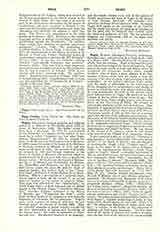

Veghe, JOHANNES, German preacher and religious writer, b. at Munster in Westphalia about 1435; d. there, September 21, 1504. His father seems to have been a physician. In 1450 he matriculated at the University of Cologne; in the register of students he is called “Johannes ten Loe alias Veghe clericus Monasteriensis”. In 1451 he entered the house of the Brethren of the Common Life of Munster, in 1469 became first rector of the house of the Brethren at Rostock, returned to Munster in 1471 and was made rector there in 1475. On account of ill health he resigned in 1481 and became confessor to the
Sisters of Niesink at Munster; this position which he retained until his death, gave him time to gratify his literary tastes. He lived to see the victory of Humanism (q.v.) in Munster and Westphalia; the Humanists Murmellius and Hermann von dem Busche in their poems praise his pious life and his study of religious books. His earliest work is his “Geistliche Jagd”, dedicated to Duke Magnus II of Mecklenburg. This is a description of a spiritual chase, whose object is God; all the details of an actual hunt are applied to the sphere of spiritual things. This work was followed by the: “Marientrost”, in which Veghe wishes to show how and why we should appeal to the Blessed Virgin; “Geistliches Blumenbett” (Lectulus floridus), dedicated to the Sisters of Niesink; and “Weingarten der Seele”, which treats in three books of the progress of man from the beginning of Christian life to perfection. Veghe’s main work eonsists of sermons delivered in Low German before the Sisters of Niesink 1492. They are splendid examples of pulpit oratory, notable for the keen observation of nature and knowledge of the human heart; the mode of expression is vigorous and racy. His absolute mastery of the language, and the simple, natural style, will, in the opinion of Triloff, perpetuate the fame of Veghe in the history of Low German literature. His sermons were edited by Professor Franz Jostes in 1883. In dogma Veghe held rigidly to the teachings of the Church, but he would not accept the gaining of indulgences for the dead, who he believed were entirely under the hand and judgment of God. He was genuinely religious, not hypocritical, and at the same time cheerful and kindly.
KLEMENS LOFFLER

